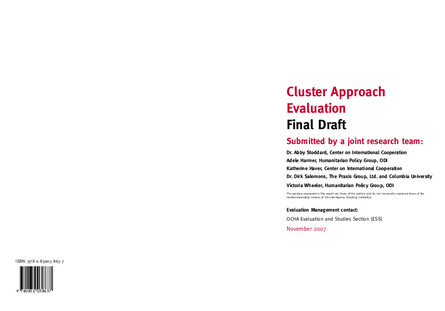
Objectives: To assess the impact of the clusters, in terms of improving the quality and quantity of humanitarian response and consequently better meeting the needs of affected populations; To provide recommendations for future efforts to strengthen humanitarian response and enhance its impact.
Comments: Management Response Matrix, June 2008
This evaluation found that, despite early problems that caused confusion and some lingering ill will, there is evidence that the cluster approach has resulted in some systemic improvement in coordinated humanitarian response. Some clusters have performed better than others. In most cases, improvements were driven solely by the clusters in the field, with little or no support from the global clusters, which had not yet completed or implemented the bulk of their capacity projects, due in part to late receipt of funding. There are weaknesses within the approach as it is currently defined, particularly in the crucial Provider of Last Resort stipulation, and it has generated an additional workload. Overall, however, the costs and drawbacks of the new approach are exceeded by its benefits for sector-wide programming, and it has slowly begun to add value.